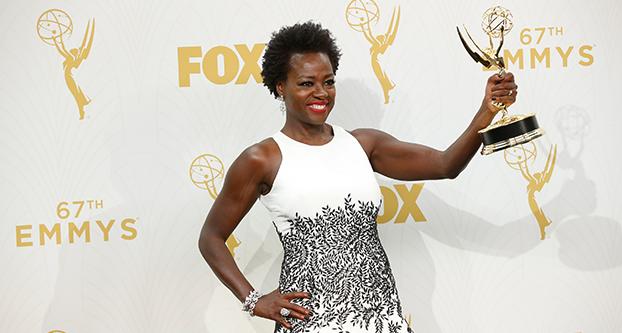Viola Davis made history Saturday when she accepted her Emmy for outstanding actress in a drama for her performance in “How to Get Away With Murder.” Davis is the first black woman to win the award.
This is a huge win for not just the black community, but for all women of color.
Davis quoted Harriet Tubman in her acceptance speech, saying: “In my mind, I see a line. And over that line I see green fields and lovely flowers and beautiful white women with their arms stretched out to me over that line. But I can’t seem to get there no how. I can’t seem to get over that line.”
Davis beautifully made the connection between struggles and barriers black women faced in the 1800s and now.
While today’s struggles are of no magnitude compared with what they were during Tubman’s years, the quote feels as though it could have been said presently about many issues in today’s society.
Each barrier being broken down is a triumph for the black community, even ones as seemingly small as an award in entertainment.
She ended her speech thanking the writers who have helped her cross this line.
In her acceptance speech, Davis said, “The only thing that separates women of color from everyone else is opportunity.”
Davis’s use of the phrase “women of color” is an interesting and splendid choice.
She could have easily said “black women.” But she didn’t. Davis recognized the struggle that all non-white women face in the entertainment industry. She stands in solidarity with women everywhere.
Women of all backgrounds face difficulties breaking into the industry, but the pressure is harder for a woman of color.
There are fewer roles in Hollywood, higher expectations and fierce competition for limited opportunities.
The lack of serious roles for women in the entertainment industry is always a difficulty, but there are even fewer roles for women of color.
The available roles for women of color in entertainment are often confined to the music industry and prey more on a woman’s sexual prowess rather than her innate talent.
Other available roles are often restricted by age, making it that much more difficult for the pool of women vying for roles.
Davis is right. There would be many more wins like this if there were more opportunity for women of color, if the parts written for them weren’t only supporting roles or stereotypical.
In the 66 years that the Emmys have been awarded, only seven black women have been nominated for best actress in a drama. That is far too little.
And before 2015, that number was only five. Both Davis and Taraji P. Henson were nominated this year for lead actress in a drama.
Dual nominations of women of color is a step toward a brighter future in which the entertainment industry is less biased about which stories deserve to be televised.
With Davis winning a major award in the entertainment industry, she is a prime example of what black women, and women of color, are capable of outside of the music industry. Women of color can do more than sing or be backup dancers.
With her success, we hope to see more leading roles written for women of color.
There are stories yet to be told, stories that stray from the idealized whiteness of Hollywood.
Davis stands as a call to action for writers to create more stories with leading women of color roles.




